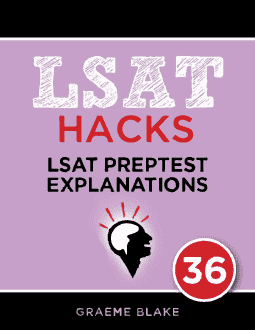QUESTION TEXT: The retail price of decaffeinated coffee is…
QUESTION TYPE: Necessary Assumption
CONCLUSION: Decaf can’t possibly cost more because it’s more expensive to produce.
REASONING: The decaffeination process is not very expensive.
ANALYSIS: The argument sounds very good. If decaf coffee doesn’t cost more to process, then how could it possibly cost more to produce?
Well, there could be other costs apart from processing. The negation of the correct answer tells us that the beans could cost more to buy. That would explain the higher price.
___________
- Actually, the argument admits that decaf costs more to process. It just doesn’t cost much more.
- It doesn’t matter what causes differences in product prices as long as the cause isn’t production costs in the particular case of decaf coffee.
- Even if there was a lot of competition, the argument’s point that processing doesn’t cost much is still true.
- If retail sellers did expect that consumers would pay more for decaf then that could explain why the price is higher. The assumption in this answer choice definitely isn’t necessary.
- CORRECT. If decaf beans cost a lot more then that could account for the price difference, even though the processing cost is the same.

Free Logical Reasoning lesson
Get a free sample of the Logical Reasoning Mastery Seminar. Learn tips for solving LR questions


I liked A because I thought, well even if processing decaf isn’t so expensive, guess what – maybe it’s 5 cents versus 1 cent for regular, and that could add up! And therefore the price difference could in fact be accounted for by the cost of providing the coffee to the consumer..
The negation of (A) is: “Processing regular coffee does not cost more (that is, the cost is lesser than or equal to) than processing decaffeinated coffee”.
The most minimal negation is to say that the costs are equal. We now have to ask if plugging the negation back into the argument makes the argument fall apart, and the answer is no. The issue is that the argument admits that the cost of “providing” a cup of decaf is greater than the cost of providing a cup of regular coffee. So, even if the processing costs of regular coffee were lesser than or equal to the processing costs of decaf coffee, the argument concedes that the overall cost of “providing” is greater, meaning that there are other costs involved here beyond processing.
I didn’t like the language in this conclusion. What does it mean, “providing decaffeinated coffee to the consumer”? Does that mean, the cost for me, as a restaurant owner, to brew you a cup of decaf coffee? Does it mean, every possible cost associated with getting the coffee from farm to mug, including growing the beans, importing, processing, etc?
Well, those two questions are basically asking the same thing — the cost of brewing a cup of coffee for the consumer must include all costs associated with getting that coffee to the consumer. To even get to the step of brewing the coffee, the beans need to be purchased from a retailer, who in turn purchases it from farmers, etc. In this sense, the language is not that confusing — we can make the common sense assumption that the costs of “providing” a cup of coffee include all the relevant costs that you mentioned.